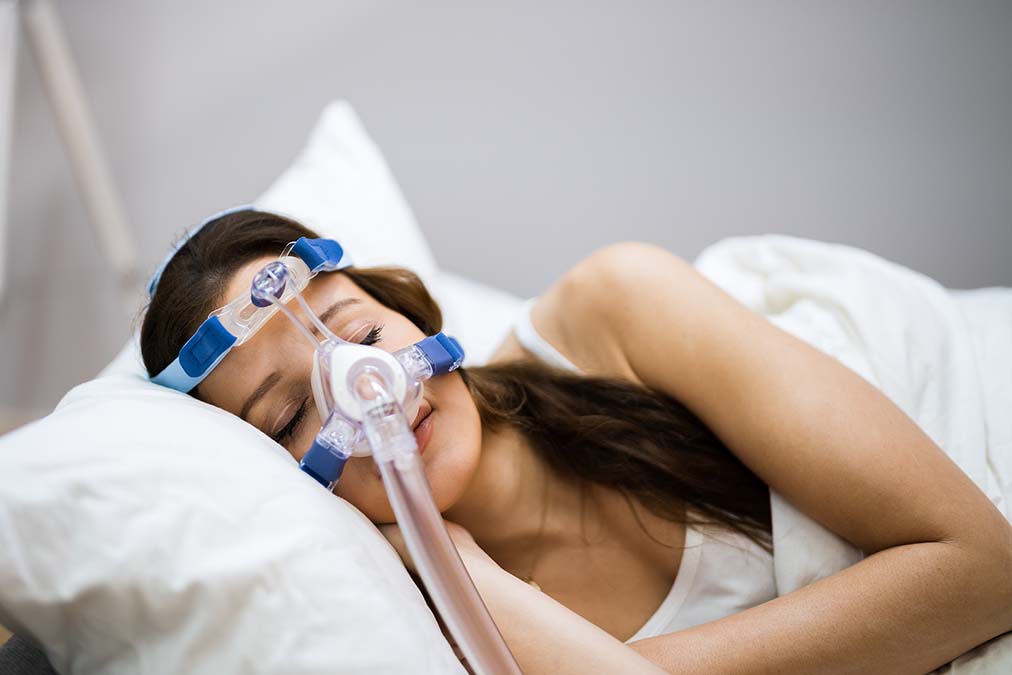 If you have high blood pressure that just will not go down no matter what you do (diet, exercises, drugs), chances are high that it is caused by sleep apnea.
If you have high blood pressure that just will not go down no matter what you do (diet, exercises, drugs), chances are high that it is caused by sleep apnea.
And if you say, “I don’t have sleep apnea”, there is a 94% chance that you’re wrong—especially if you snore.
This is according to new research published in the American Heart Association’s journal Circulation.
Fortunately, there is a little trick that you can do to cure your snoring and sleep apnea, while bringing your untreatable blood pressure down in the process.
As if high blood pressure wasn’t bad enough, some people develop a version of it that is almost untreatable, regardless of whether it is treated by drugs or natural methods.
This often happens to people who have had extremely high blood pressure for a very long time; it is especially common among African-Americans.
Scientists have long known that people with sleep apnea are more likely to have high blood pressure, but do people with this sleep disorder also have an increased risk of developing hard-to-treat hypertension?
To find out, a research team recruited 664 participants with high blood pressure and categorized them based on whether or not they had sleep apnea; if they had sleep apnea, it was defined as mild, moderate, or severe.
Almost one-quarter of the participants had moderate or severe sleep apnea, with 94% of them being undiagnosed at this point in the study.
For 48% of participants, their blood pressure was out of control, even though they were taking two blood pressure drugs.
A further 14% had out-of-control blood pressure, even though they were on three drugs.
Both of these groups were categorized as having hard-to-treat blood pressure (maybe they should have tried natural treatment methods instead of the drugs!).
When they compared the various groups based on their blood pressure readings, they found the following:
-
1. Compared to people without sleep apnea, people with moderate sleep apnea were twice as likely to have hard-to-treat hypertension.
2. Compared to people without sleep apnea, people with severe sleep apnea were 3.5 times more likely to have hard-to-treat hypertension.
This suggests that you cannot get rid of your treatment-resistant hypertension without first treating your sleep apnea.
So why does sleep apnea cause hard-to-treat hypertension?
If you have normal high blood pressure, your readings tend to be high during the day and drop somewhat during the night.
Sleep apnea increases your blood pressure during the night, adding to the negative effects of highly elevated blood pressure during the day, and therefore leading to 24-hour cycles of extremely high readings.
If it never drops, it might become more resistant to treatment than blood pressure that occasionally drops.
Fortunately, there are simple throat exercises that you can do that can eliminate your snoring and sleep apnea—starting as soon as tonight. You can test these Stop Snoring and Sleep Apnea Exercises here…
And if you have high blood pressure (even hard-to-treat hypertension), learn how these 3 easy exercises drop it below 120/80 in as little as nine minutes…

 Overcoming IBD
Overcoming IBD Multiple Sclerosis
Multiple Sclerosis Banishing Bronchitis
Banishing Bronchitis Gum Disease Gone
Gum Disease Gone Overcoming Onychomycosis
Overcoming Onychomycosis Neuropathy No More
Neuropathy No More The Prostate Protocol
The Prostate Protocol Brain Booster
Brain Booster
 Ironbound
Ironbound
 Solution for Shingles
Solution for Shingles
 The Bone Density Solution
The Bone Density Solution
 The Ultimate Healing Protocol
The Ultimate Healing Protocol
 The Parkinson's Protocol
The Parkinson's Protocol
 The Chronic Kidney Disease Solution
The Chronic Kidney Disease Solution
 Overthrowing Anxiety
Overthrowing Anxiety The Fatty Liver Solution
The Fatty Liver Solution The Hypothyroidism Solution
The Hypothyroidism Solution
 The End of Gout
The End of Gout The Blood Pressure Program
The Blood Pressure Program
 The Oxigized Cholesterol Strategy
The Oxigized Cholesterol Strategy
 Stop Snoring And Sleep Apnea Program
Stop Snoring And Sleep Apnea Program
 The Arthritis Strategy
The Arthritis Strategy The Vertigo & Dizziness Program
The Vertigo & Dizziness Program The 3-Step Diabetes Strategy
The 3-Step Diabetes Strategy Hemorrhoids Healing Protocol
Hemorrhoids Healing Protocol The Erectile Dysfunction Master
The Erectile Dysfunction Master Weight Loss Breeze
Weight Loss Breeze The IBS Program
The IBS Program The Insomnia Program
The Insomnia Program The Migraine and Headache Program
The Migraine and Headache Program The Neck Pain Solution
The Neck Pain Solution The Menopause Solution
The Menopause Solution The Ejaculation Master
The Ejaculation Master The TMJ Solution
The TMJ Solution The Acid Reflux Solution
The Acid Reflux Solution The Fibromyalgia Solution
The Fibromyalgia Solution The Psoriasis Strategy
The Psoriasis Strategy